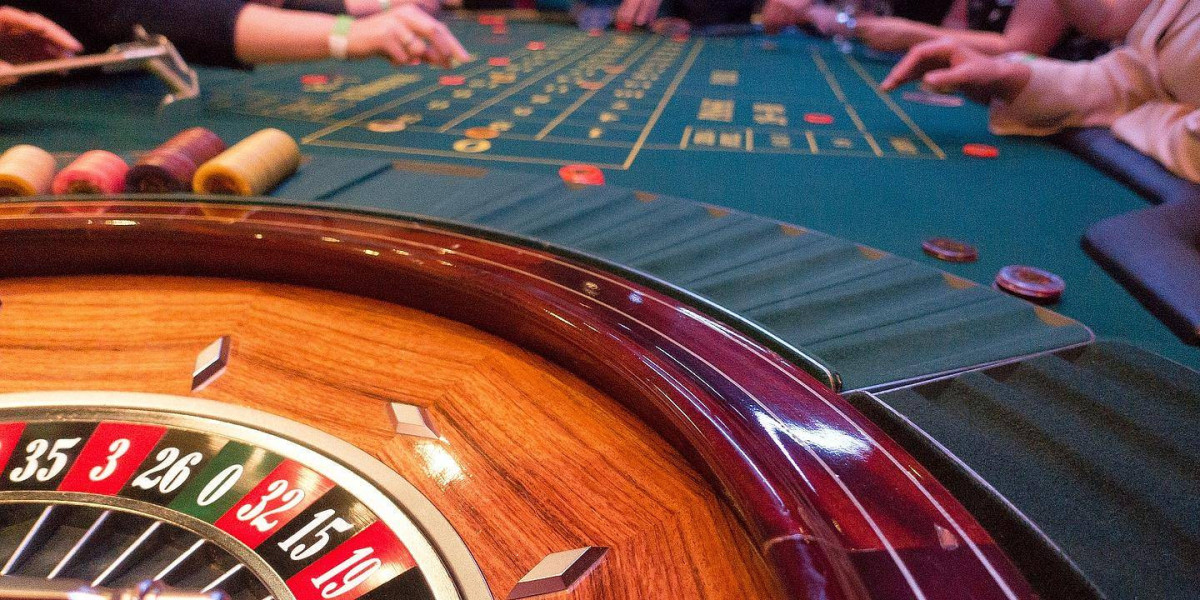Chasing Jackpots Down Chicken Road: A Gambler's Guide to Casino Alley
For every glittering Las Vegas Strip, for every opulent Macau casino, there's a "Chicken Road" – a metaphorical, and sometimes literal, back alley of the gambling world. This isn't about specific locations, although many exist. Rather, it represents the relentless pursuit of the big win, the desperate strategies, and the sometimes shady environments that some gamblers find themselves navigating. "Chicken Road (chicken-road-365.com)" embodies the dark side of chasing jackpots, the paths less traveled that often lead to ruin rather than riches. This guide explores the metaphorical Chicken Road, dissecting the behaviors, strategies, and risks associated with desperate gambling tactics, ultimately offering advice on how to avoid ending up lost in its perilous twists and turns.
Understanding the "Chicken Road" Mentality
The "Chicken Road" mentality is born out of desperation and fueled by the illusion of control. It’s the belief that a system, a hunch, or a desperate act can overcome the inherent house advantage in casino games. Players on this metaphorical road often abandon rational thinking, substituting it with superstition, faulty logic, and a fierce, often misplaced, belief in their own "luck." They're driven by the sunk cost fallacy, believing that the more they lose, the closer they must be to winning big, a dangerous and often disastrous line of reasoning.
This mindset often manifests in specific behaviors. Players might chase losses aggressively, increasing their bets after each loss in a futile attempt to recoup their money. They might fall prey to gambling fallacies, like believing that after a series of losses, a win is "due." They might also resort to unethical or even illegal tactics in a misguided attempt to gain an edge, further deepening their descent down "Chicken Road." The underlying characteristic is a departure from responsible gambling practices, replaced by a frantic, uncontrolled desire to win at any cost.
The Gambler's Fallacy: A Pothole on Chicken Road
One of the biggest traps on "Chicken Road" is the gambler's fallacy. This is the mistaken belief that if something happens more frequently than normal during a given period, it will happen less frequently in the future (or vice versa). For example, in roulette, after seeing a red number come up several times in a row, a player might believe that black is now "due" to come up. However, each spin of the roulette wheel is an independent event. The previous results have absolutely no influence on the next result. The odds of red or black are always the same, regardless of what has happened before.
The gambler's fallacy can lead to disastrous betting strategies. A player convinced that a certain outcome is "due" might bet heavily on that outcome, only to lose again and again. This can quickly deplete a bankroll and lead to significant financial losses. Understanding the true nature of randomness and independent events is crucial to avoiding this dangerous pitfall on "Chicken Road."
Examples of Gambler's Fallacy in Action:
- Roulette: Betting heavily on black after several reds, believing it's "due."
- Slot Machines: Continuing to play a losing slot machine, convinced it's about to hit a jackpot.
- Craps: Betting against a "hot" shooter, assuming their streak will end soon.
- Lottery: Choosing numbers based on past results, believing certain numbers are "lucky."
Chasing Losses: A Dead End
Chasing losses is perhaps the most common and destructive behavior associated with "Chicken Road." It’s the act of increasing bets after a loss in an attempt to recoup the lost money. This strategy is fundamentally flawed and almost always leads to even greater losses. The house advantage in casino games means that, over the long run, the casino is statistically guaranteed to win. Trying to overcome this advantage by chasing losses is a recipe for disaster.
Imagine a player who starts with a $10 bet and loses. They then double their bet to $20, hoping to win back the original $10 and an additional $10 profit. If they lose again, they double their bet to $40, and so on. This strategy, known as the Martingale system, can quickly escalate to very large bets, exceeding the player's bankroll and potentially reaching the table limits. One long losing streak can wipe out all previous gains and leave the player with significant debt. The emotional distress of chasing losses can also cloud judgment, leading to even more reckless decisions.
Risky Strategies and Shady Environments
"Chicken Road" isn't just about flawed thinking; it can also involve seeking out risky strategies or even venturing into questionable environments in the pursuit of an edge. This might include:
- High-risk betting systems: Systems that promise guaranteed wins but require large bankrolls and involve significant risk.
- Unlicensed or unregulated casinos: These establishments may not adhere to fair gaming practices and may be prone to scams.
- Engaging with "tipsters" or "gurus": Paying for information or advice that is often worthless or even deliberately misleading.
- Collusion or cheating: Illegal activities that can lead to serious legal consequences.
These strategies and environments often prey on vulnerable individuals who are desperate to win. They offer the illusion of control and the promise of quick riches, but in reality, they are designed to exploit those who are already struggling. It's essential to be wary of any "guaranteed" system or any environment that seems too good to be true. Stick to reputable casinos, avoid risky betting strategies, and be skeptical of anyone offering insider information.
The Role of Emotion and Addiction
The allure of "Chicken Road" is often fueled by strong emotions. The thrill of a win, the excitement of taking a risk, and the hope of changing one's life can be powerful motivators. However, these emotions can also cloud judgment and lead to impulsive decisions. Gambling can be addictive, and those struggling with gambling addiction are particularly vulnerable to the dangers of "Chicken Road." The desperation to recapture the high of a win or to escape from financial problems can drive them to engage in increasingly risky and destructive behaviors.
Recognizing the role of emotion and addiction is crucial to avoiding "Chicken Road." It’s important to gamble responsibly, setting limits on time and money, and to seek help if gambling is becoming a problem. Self-awareness and a willingness to admit when things are getting out of control are essential for staying on the right path.
Navigating Away from "Chicken Road": Responsible Gambling
Avoiding "Chicken Road" requires a commitment to responsible gambling practices. This means understanding the risks involved, setting limits, and sticking to those limits, regardless of whether you're winning or losing. It also means recognizing the signs of problem gambling and seeking help if needed.
Here are some key principles of responsible gambling:
| Principle | Description |
|---|---|
| Set a budget | Decide how much money you're willing to spend on gambling before you start and stick to that budget. Treat it as entertainment expense. |
| Set a time limit | Decide how long you're going to gamble for and stick to that time limit. |
| Don't chase losses | If you lose, don't try to win back your money by betting more. Accept the loss and move on. |
| Gamble for entertainment only | Don't gamble as a way to make money or to escape from problems. |
| Avoid gambling when stressed, depressed or angry | Emotions will effect your judgment. |
| Take breaks | Step away from the table or machine regularly to clear your head. |
| Know the odds | Understand the house advantage in the games you're playing. |
| Don't gamble under the influence | Alcohol and drugs can impair judgment. |
| Seek help if needed | If you think you might have a gambling problem, seek help from a qualified professional. |
Resources for Responsible Gambling:
- National Council on Problem Gambling: https://www.ncpgambling.org/
- Gamblers Anonymous: https://www.gamblersanonymous.org/ga/
- GamCare (UK): https://www.gamcare.org.uk/
The Alternative: Gambling as Entertainment
The best way to avoid "Chicken Road" is to approach gambling as a form of entertainment, not as a means to make money. When you gamble for entertainment, you're less likely to get caught up in the emotional rollercoaster of winning and losing. You're more likely to set limits and stick to them, and you're less likely to chase losses or engage in risky behaviors.
Remember that the house always has an edge, and that winning is never guaranteed. Treat any winnings as a bonus, and don't expect to win every time. Focus on enjoying the experience, the social interaction, and the thrill of the game, rather than solely on the outcome. By shifting your mindset, you can transform gambling from a potential source of stress and financial ruin into a fun and enjoyable pastime. So, steer clear of "Chicken Road" and enjoy the ride on the highway of responsible gambling, where the destination is entertainment, not desperation.
Conclusion: Choose Your Path Wisely
"Chicken Road," the metaphorical alleyway of gambling desperation, represents the dangers of chasing losses, believing in false systems, and abandoning responsible gambling practices. It's a path paved with faulty logic, fueled by emotion, and often ends in financial hardship. By understanding the risks, recognizing the signs of problem gambling, and embracing responsible gambling principles, you can avoid this treacherous road and enjoy gambling as a form of entertainment. Choose your path wisely, and remember that the true jackpot lies in responsible and balanced choices.








